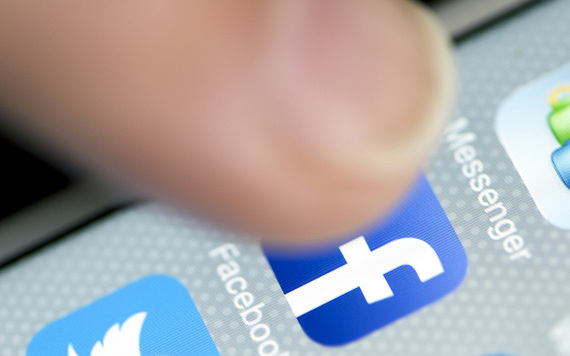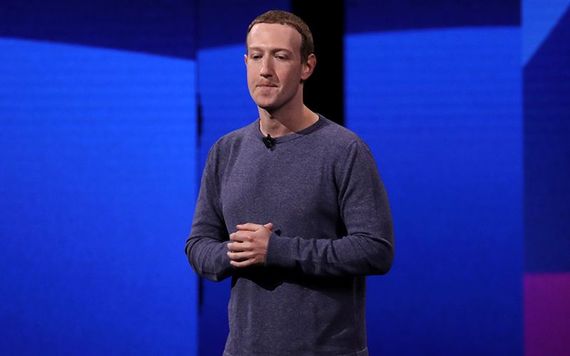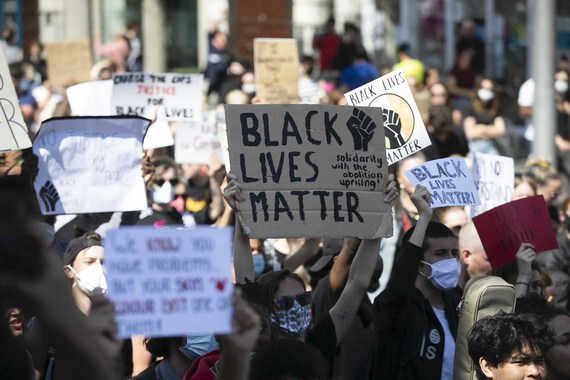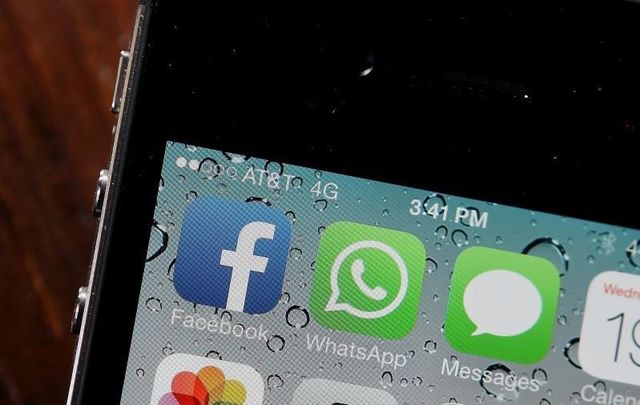There are two realities now, the one we live in and the one we carry around in our pockets
I'm talking about our smartphones. They were supposed to bring us closer, but so much of our social media has evolved into a fractious alternative universe, filled with conspiracy theories and disinformation, thanks to globally dominant apps like Facebook, Twitter, and YouTube.
In fact, our online world has become a giant funhouse mirror where what happens in real life can be warped and twisted beyond recognition by overseas actors and home grown conspiracy nuts, yet credulous people will still believe every word.
It's no surprise that many of our most autocratic political leaders were first to grasp the new power of this digital gold rush, amplifying their own brand and their divisive social messages in a way that would have been resisted just fifteen years ago.

(iStock)
As the traditional press languished and was placed on life support thanks to a new advertising model that increasingly sidelined them, a new online social media order has arisen that dispenses with the old school fact-checking and sobriety of the free press in favor of the unrestricted wild west, where the most outrageous claims get the most likes, and where people will say and do anything for attention.
There's a saying in the tech industry - when an online service is free, it's because you are the product that's being sold. That sobering fact explains why we don't have to pay for apps like Facebook and Twitter.
The truth is they have been busy for over a decade harvesting data on all of us, selling our likes and dislikes to the highest corporate bidders, and building precise individual profiles to create irresistible, individually tailored advertising pitches we will be powerless to resist. It's the kind of precisely targeted advertising the world has never seen before.
So it turns out our social media knows us better than we know ourselves now. It knows when we wake, what we look at in the morning, where we travel to, who employs us, who we know, what our politics are, what our prejudices are, what we like to read and watch and listen to, and what we don't, when we were born, and even when we are likely to die.

Because it knows us so intimately, it keeps giving us more and more of what it thinks we want. We really like reassurance, we really don't like conflict, we want to live in a world where everyone thinks like us and hopefully looks like us. Call it digital apartheid, call it political novocaine. Our phones have become our drug pushers and our therapists.
We even have a word for those who live outside our carefully policed online reservations now, and it is variously Antifa, Black Lives Matter, LGBT, socialists, liberals, them. Who they are and what they want has been turned into a giant cartoon threat, with no real engagement over why they're suddenly protesting.
Instead, they're just threatening bogeymen at the gates of our online communities. All those fences built to keep them out were real once, but now they're digital block buttons and the exclusion is just the same, and deeper actually. Because blocking someone doesn't just remove them from your sight, it blocks them from speaking. They are silenced. They are disappeared. How long before that seems like an idea in real life?
There is a joke going around about what would happen if the British had iPhones during World War Two. Every night during the Blitz, as London was bombed by squadrons of Nazi aircraft, ordinary Londoners hid in the underground tunnels, so what would they have texted to each other?
“There are no bombs, you have all been brainwashed by George Soros,” perhaps. Or “It's my right to go outside, and you can't stop me.” Or “This is all made up, the truth is they really want to control us.” Or,” “I don't consent to the new normal, I left my lights on at home.”
If the London Blitz happened in 2020. pic.twitter.com/rGjmlZhs1o
— Politics & Society Maynooth (@PolSocMaynooth) September 24, 2020
You get the idea. It doesn't seem to matter what objective reality shows us anymore, because now you can just vanish down your own digital rabbit hole, creating any alternative reality you prefer, ones that better comport with your political opinions, and there you will meet hundreds of others just like you who are doing the same insane thing.

Real life is hard, politics interactions are complex, different histories and perspectives are challenging, so why not just click a big thumbs down and block them all and just go live in your own digital reservation instead? What could be the harm in that?
Are you frightened by all the massive forest fires in the west? Well, it's not climate change that's at fault, they've all been intentionally started by Antifa, BLM, gay people, aliens, and the ghost of Greta Garbo.
Are you worried that Trump failed to protect America from the coronavirus? Well, the truth is he was busy fighting the ten-foot alien lizards who secretly run the Democratic party from a Pizza Hut in the midwest. Give him a break, okay?
The truth is we are only at the beginning stages of the digital divide between reality and the ridiculous. We are only at the start of the terrifying harm that social media is doing to our culture, our politicians, our personal happiness, and our futures.
The social isolation of the pandemic cruelly echoes the increasing isolation of our online lives. But are we building cocoons or shrouds?




Comments